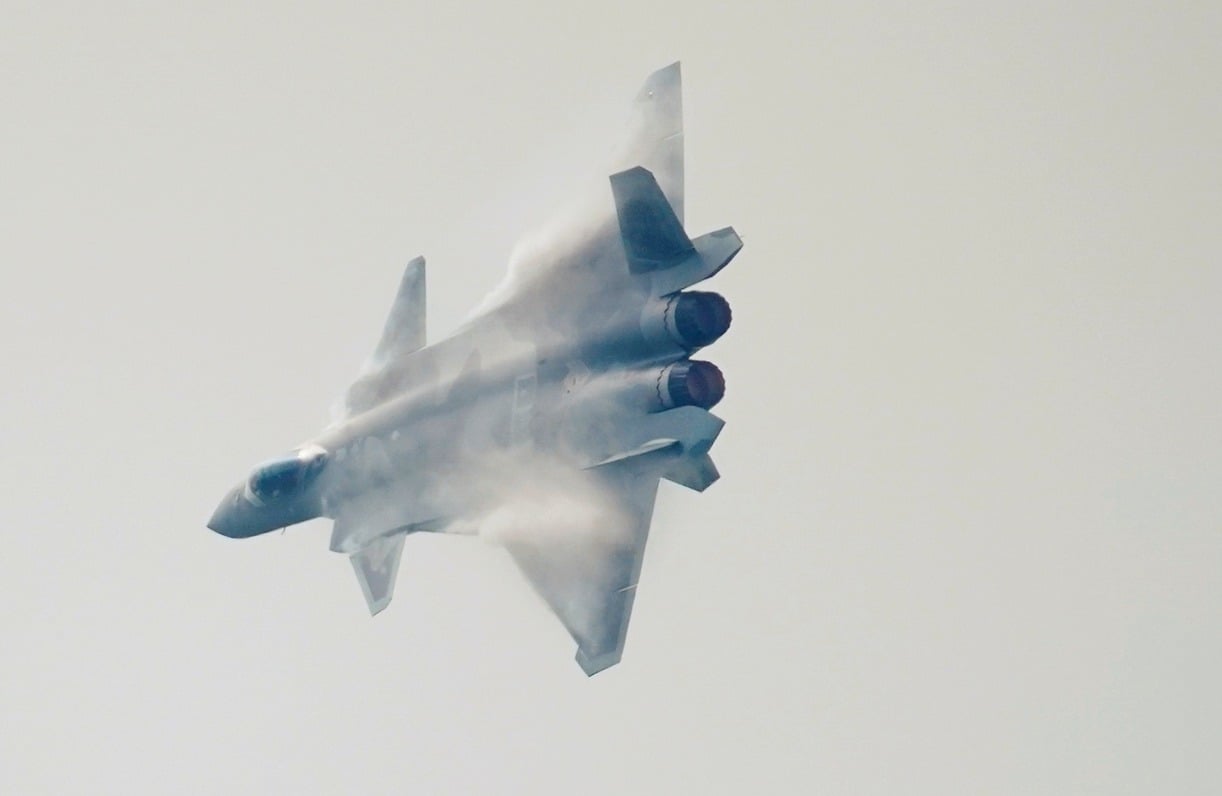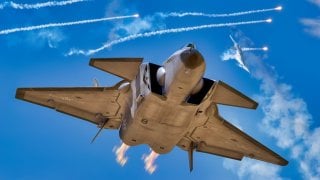China's J-20 Stealth Fighter: A Ripoff of American Technology?
The Chengdu J-20 Mighty Dragon, China's first fifth-generation stealth fighter, has raised suspicions of incorporating American technology.
Summary and Key Points: The Chengdu J-20 Mighty Dragon, China's first fifth-generation stealth fighter, has raised suspicions of incorporating American technology.
-Following its 2011 debut, questions arose about the rapid development of the J-20, potentially facilitated by espionage and technology theft.
-China may have benefited from downed F-117 Nighthawk technology and insights from McDonnell Douglas's Shanghai assembly plant. According to James Anderson, former Acting Under Secretary of Defense for Policy, such espionage has significantly advanced the J-20, saving China time and resources.
Chengdu J-20: China's Stealth Fighter and the Espionage Debate
The Chengdu J-20 Mighty Dragon was the first Chinese fifth-generation stealth fighter. Accordingly, the J-20 was afford a measure of respect from the Western world who recognized that an adversary had taken a step towards mitigating a hallowed military advantage. Yet, the J-20 in not on par with American fifth-generation fighters like the F-22 or the F-35, despite potentially incorporating American technology.
Is the J-20 homegrown?
In 2011, immediately following the J-20’s debut, the Center for Strategic and International Studies (CSIS) posed the question on everyone’s mind: ‘Does China’s New J-20 Stealth Fighter Have American Technology?’
“This is not the first time China has moved more rapidly in building advanced weaponry,” CSIS wrote. “It took the United States and the Soviet Union several decades to achieve reduction in the noise emitted by their nuclear submarines, while China achieved similar results in roughly half the time.” But because the Chinese never showed much talent for developing comparable advanced technologies, suspicions were raised. "It is reasonable to ask if China was able to acquire the necessary submarine technologies, which neither the United States nor the Russians would share, through espionage or other illicit means."
Now, the speed and manner with which the Chinese were able to develop the J-20 is raising similar questions.
China, as one might expect of any rational actor, actively works to harvest US military technology. With respect to stealth technology, the Chinese may have acquired fragments of a downed F-117 Nighthawk from the Serbians in 1999. China denies obtaining the F-117, but the denial is likely a canard; China was supporting Serbia at the time, and a Serbian ‘thank you,’ in the form of an American stealth technology exchange would not have been unusual.
China also took careful notes when the American company, McDonnell Douglas, operated an assembly plant in Shanghai during the 1990s. From observing American manufacturing methods, the Chinese were able to learn skills and technology that have accelerated the growth of China’s own aerospace manufacturing.
None of China’s tech harvesting activity is out of the ordinary, nor is the recent spate of cyber espionage. But according to former Acting Under Secretary of Defense for Policy, James Anderson, the J-20 has directly benefited from lifting US technology. “What we know is that because of the espionage efforts. J-20 is more advanced than it otherwise would be, and that’s the important point here. They have profited greatly from their thievery over the years. They’ve put it to good use, and they’ve come up with an advanced fifth-generation fighter.”

Anderson said that the methods China employed to learn US military secrets was far-ranging – everything from “low-tech” methods like human intelligence, honey traps, bribes, et cetera, to higher tech options like cyber hacking.
“It saves the Chinese time and money,” Anderson said. “in effect, we end up subsidizing a portion of their research and development budget because they are successfully stealing some of our secrets.”

About the Author: Defense Expert Harrison Kass
Harrison Kass is a defense and national security writer with over 1,000 total pieces on issues involving global affairs. An attorney, pilot, guitarist, and minor pro hockey player, Harrison joined the US Air Force as a Pilot Trainee but was medically discharged. Harrison holds a BA from Lake Forest College, a JD from the University of Oregon, and an MA from New York University. Harrison listens to Dokken.
All images are Creative Commons.
From the Vault
Russia Freaked Out: Why the U.S. Navy 'Unretired' the Iowa-Class Battleships
Battleship vs. Battlecruiser: Iowa-Class vs. Russia's Kirov-Class (Who Wins?)


